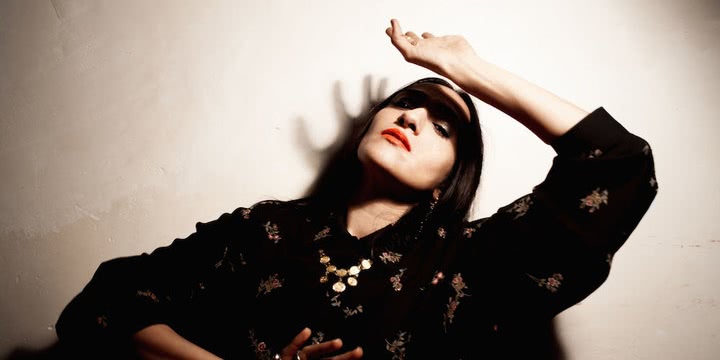Franco-Moroccan singer Hindi Zahra is one cool cat.
Not even a minute into our conversation, we are broaching the subjects of feminism and politics as she effortlessly draws on her cigarette.Her opinions are insightful and worldly – formed from a childhood in Morocco and France, and adulthood touring the globe.
“My grandfather was a nomad of the desert and my father was a military officer, so I grew up in many different places,” she says. “I’m not really used to one population, one city, one culture, one language. My father speaks six languages and we grew up in many different places and cultures.”
The concept of multiculturalism is obviously something that resonates strongly with Zahra, evident when listening to her music and her singing style that jumps between English, French and Berber (a northern African indigenous language). Zahra recounts a show she played with her band in Ankara, Turkey only weeks after October’s terror attacks there.
“We went to Turkey after the bombs in Ankara, and we played one of the first concerts that was allowed in Turkey after those bombings, and we played for 2,000 people. When you get onstage, you say to people that the real politics is art, is music, is expression, and that makes me very proud of what we are doing.
“What is also interesting on tour is to see the different ages within my audiences, different religions, different nationalities. For example, the show we just played, we had people of all colours, all ages, men and women. This is very important to me – to deconstruct boundaries and to create bridges between cultures, people, genders. That is my motivation.”
Zahra’s creativity isn’t limited to music – if she’s not on tour, she’ll be painting, which she sees as another platform to build bridges between people and cultures.
“When I finish the tour and go back home, I will be surrounded by silence, and painting is a kind of silent meditation for me, because it’s a space for silence and creation. For me, painting is about letting my body express itself, without my brain controlling anything.”
Zahra, who released her second album Homeland this year, has often been compared to female artists like Patti Smith and Janis Joplin, and during our conversation her strong sense of femininity is tangible. She explains that she loves these comparisons, her modesty shining through.
“I’ve been called the African Patti Smith. I think it’s not about the music, but the way I portray myself onstage. They both had this masculine energy, and most of the female artists nowadays portray this feminine, sexual energy, and we need a mixture of both energies.
“For example, Tina Turner is female and male at the same time. She can be wearing a really short skirt, but you can still feel her masculine side. She is not about seduction, she is into the power of women, which is really interesting for me, because it is easy for a woman to play on her powers of seductive body language – this is the easiest thing for a woman to do. However, females are taught to hide this masculine force because they are scared of being attacked for being too masculine. I’m not interested in that seductive side of female performance.”
Homeland is out now through Parlophone/Warner; and Hindi Zahra performsat So Frenchy So Chic In The Park, St John’s College, Saturday January 16.


































